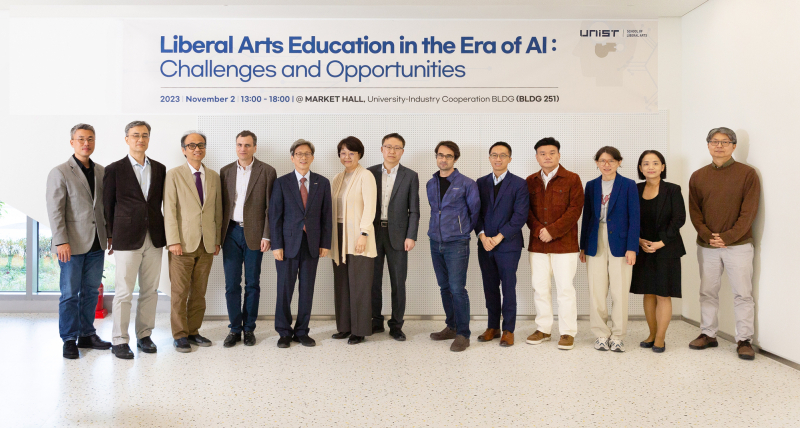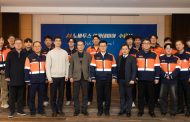On November 3, UNIST announced that the School of Liberal Arts Research Center successfully organized an international colloquium on the theme of “Liberal Arts Education in the Era of Artificial Intelligence (AI): Challenges and Opportunities.”
Esteemed education experts from Nanyang Technological University (NTU), the Hong Kong University of Science and Technology (HKUST), the Gangju Institute of Science and Technology (GIST), and the University of Ulsan attended the event. The purpose of the colloquium was to engage in discussions revolving around ethics, policies, and the mission of liberal arts education in a technologically advanced society.
Jinsook Choi, Head of the School of Liberal Arts (SLA) at UNIST, expressed the challenges faced by the University of Science and Technology in recruiting and nurturing talents due to a decline in the school-age population and the prevalence of the “university craze.” She further emphasized the crisis brought about by the emergence of generative AI and emphasized the need to view it as an opportunity to cultivate next-generation talent.
Vice President Jaiyong Lee of UNIST delivered a keynote speech, emphasizing the importance of equipping college students with new competencies and adaptable thinking to keep pace with the rapidly evolving technologies and prepare for an uncertain future labor market. He urged universities to actively promote future-oriented knowledge and skills through liberal arts education.
The speakers at the colloquium agreed that the advent of generative AI technology poses a challenge to the fundamental role of liberal arts education, but also presents an opportunity to foster students’ creativity, critical thinking, and ethical reasoning abilities.
During a roundtable discussion, involving faculty members from the science and engineering departments at UNIST, participants shared their insights on university education as a whole. They acknowledged the impact of advanced technologies, such as the commercialization of generative AI, on the changing landscape of higher education. The discussion revolved around defining the educational direction and purpose that universities should pursue in order to nurture next-generation talent. It was unanimously agreed that expanding the horizons of science and engineering students through liberal arts education is a pressing need.
Jinsook Choi, Head of the School of Liberal Arts (SLA) at UNIST, expressed the intention to use this colloquium as a stepping stone for ongoing discussions on “education for science and engineering talents” with educators from both domestic and international institutions. The aim is to foster academic and educational exchanges in the field.
The event took place at Market Hall in the UNIST University-Industry Cooperation Building on November 2, 2023.







![[2026 Matriculation] UNIST Welcomes Class of 2030!](https://news.unist.ac.kr/wp-content/uploads/2026/02/사진-박종래-UNIST-총장이-2026년-입학식사를-전하고-있다-2-190x122.jpg)
![[2026 UNIST Commencement] UNIST Confers Degrees to 883 Graduates](https://news.unist.ac.kr/wp-content/uploads/2026/02/사진-2026학년도-UNIST-졸업생들이-학사모를-위로-던지며-졸업을-축하하고-있다-1-800x413-190x122.jpg)




